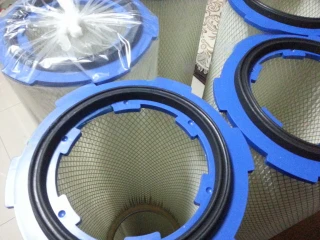 Tel:
+8615930870079
Tel:
+8615930870079
ديسمبر . 24, 2024 22:52 Back to list
sintered metal filter cartridge
Sintered Metal Filter Cartridges An Overview
In the world of industrial filtration, sintered metal filter cartridges have emerged as a vital component due to their durability, efficiency, and versatility. These cartridges are primarily used to remove solid particles from liquids and gases, ensuring the purity of the media being processed. As industries continue to evolve, the demand for advanced filtration solutions increases, positioning sintered metal filters as an essential technology.
What are Sintered Metal Filter Cartridges?
Sintered metal filter cartridges are made from metal powders that are compacted and then heated in a controlled environment. This process, known as sintering, fuses the metal particles together, creating a porous structure that allows fluids to pass while trapping contaminants. The materials used in sintering can include stainless steel, bronze, and other alloys, offering a range of physical and chemical properties to suit various applications.
The manufacturing process can create a variety of pore sizes, which is crucial in determining the filtration capability of the cartridge. Common pore sizes range from 1 micron to 100 microns, making them suitable for diverse filtering applications—from coarse filtering to fine, precision filtration.
Advantages of Sintered Metal Filters
1. Durability One of the greatest advantages of sintered metal filter cartridges is their durability. Unlike filter media made from polymer or paper, sintered metal filters can withstand high temperatures and pressures, making them ideal for harsh operating environments.
2. Chemical Resistance Sintered metal has excellent chemical resistance, allowing these filters to be used with a wide range of corrosive substances. This property ensures that the filters maintain their integrity, performance, and safety over time.
sintered metal filter cartridge

3. Reusability Sintered metal filters can be cleaned and reused, making them a cost-effective solution for many applications. Cleaning can be done through backwashing, ultrasonic cleaning, or physical brushing, depending on the application and level of contamination.
4. Customizability These filters can be designed to meet specific requirements, including varying dimensions, porosity, and filtration ratings. Manufacturers can tailor sintered metal cartridges to suit unique process conditions or regulatory standards.
5. High Flow Rates The porous structure allows for high flow rates while maintaining significant filtration efficiency. This characteristic is particularly useful in processes where flow consistency is critical.
Applications of Sintered Metal Filters
Sintered metal filter cartridges find usage in a myriad of industries, including
- Chemical processing In chemical plants, these filters are used to remove impurities that can affect product quality. - Pharmaceuticals Sintered metal filters help in maintaining sterility and purity in pharmaceutical production processes. - Oil and Gas These filters are utilized in upstream and downstream processes to separate contaminants from fuels and fluids. - Food and Beverage In this industry, maintaining safety and quality is imperative, and sintered metal filters meet stringent hygiene standards while ensuring product integrity. - Water Treatment They play a crucial role in the filtration of drinking water and wastewater management, ensuring compliance with health regulations.
Conclusion
Sintered metal filter cartridges represent a significant advancement in the field of filtration technology. Their robustness, efficiency, and versatility make them suitable for a wide range of industrial applications. As industries continue to prioritize quality and operational efficiency, the importance of reliable filtration solutions like sintered metal filters will undoubtedly grow. Whether for a novel application or to enhance existing processes, sintered metal filter cartridges stand out as a proven choice for achieving optimal filtration performance.
-
Nano Fiber Technology: Revolutionizing Cartridge Dust Collector FiltersNewsAug.06,2025
-
How Activated Carbon Air Cartridges Eliminate OdorsNewsAug.06,2025
-
Dust Filter Cartridge Handling Fine Particulate MatterNewsAug.06,2025
-
Cartridge Dust Collector Filter for Welding Fume ExtractionNewsAug.06,2025
-
Activated Carbon Filter Cartridge Effectiveness Against VOCsNewsAug.06,2025
-
Activated Carbon Air Filter Cartridge Benefits ExplainedNewsAug.06,2025

 Email:
Email:





